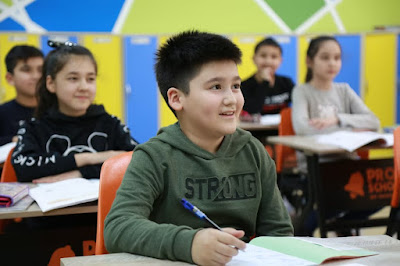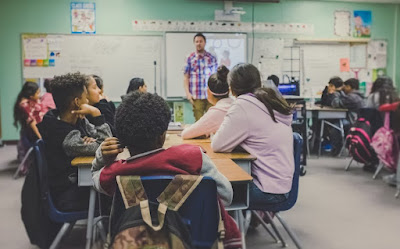Children who are about to enter elementary
usually transfer schools. Their parents move them into a much bigger campus so
that the kids can meet more people and explore more places. This is an
important milestone for all children. It is the time when they start to see
their school as their second home.
But of course, children go to school to learn,
so parents focus on the curriculum the most when they assess each school's
programs. However, it's the children's well-being that matters more than their
academics. If a child doesn't feel at home in school, no good curriculum can
change that. Instead, what the child needs is a safe and comfortable
environment that would help them thrive.
That said, aside from a good curriculum, these
are the things parents should look for in schools:
1.
Socialization Opportunities
Socialization opportunities became scarce for
kids during the pandemic. If your child hasn't played with anyone since 2020,
they might find socializing a little overwhelming when they get back to school.
It would be easier if they'd rejoin their old classmates. But if you transfer
them to another school, they'll have no friends on campus.
Check out their school's social options.
Students should have time to mingle with their classmates before, during, and
after classes. They can join clubs or hang out in places where groups are
welcome, like the library or any common area.
The school should also provide a safe avenue
where children can discuss their interests, passions, hobbies, or current
events. Meaning, the campus should encourage diverse ideas, not be biased
toward a particular group of people or beliefs.
Find out how the teachers help students make friends as
well. Do they provide group activities or activities by pairs? These strategies
foster friendships in the classroom, allowing every student to gain a sense of
belonging.
2.
Healthy Cafeteria Food
Kids in elementary school usually stop
bringing food from home because they'd start getting their lunch from the
school's cafeteria. With their meals out of your control, you should ensure
that their school's options are nutritious.
Fortunately, American school lunches are
healthy, and students who take them are found to be healthier. According to the
CDC, students who participate in school meal programs eat more whole grains,
milk, fruits, and vegetables and have a better overall diet.
The cafeteria should offer healthy
after-school snacks, too. Find out if their school participates in any healthy
snack program. Ideally, your kid shouldn't be getting access to sugary
beverages and food after their class hours. They can get those during special
occasions only, and with your supervision. When they're still young, it's
crucial to help them stick to a healthy diet so that they can maintain it
easier when they grow up.
3.
Security and Safety Measures
If you'd do anything to ensure your child's
security at home, then a school should do the same for their students. Strong
school security measures are crucial to preventing school
shootings, which are sadly common in the U.S.
All schools should have a systematic,
organized emergency response plan. The classrooms should also be equipped with
security alarms and other defensive equipment. The doors, for example, should
be locked and barricaded in an instant if a criminal accesses the campus.
Teachers should be trained in handling an emergency with a level head so that
the students won't panic.
Ask your child's teacher if they and the rest
of the staff are trained in emergency response. Their training shouldn't be a
one-time occurrence but a continual one. To be even more certain of the
school's security, ask your child if they conduct emergency response drills
regularly. The drills are a necessary measure to train both students and
teachers in safety and security.
4.
Data Security
Data security or cybersecurity should
be part of a school's security measures. If the students' data are unprotected,
criminals can steal them and use the information they got to harm children.
A tried-and-true practice of data security is
minimizing the amount of information collected. During enrollment, for example,
the school should refrain from asking for sensitive information, like the
parents' workplace or the student's contact number. Asking for Social Security
numbers isn't good either. Schools should stick to the essentials, like the
parents' names and necessary contact details.
The less information schools collect, the less data they can store. As a result, it'd be less costly for them to safeguard it. So take time to consider a school's cybersecurity measures before enrolling your child.
Children become a lot more independent and
detached in elementary school. Hence, you can only count on their teachers and
school administrators to watch over them at school. Prioritize your child's
well-being instead of their grades; stellar marks won't matter if your child is
unhappy or unsafe.



No comments :
Post a Comment